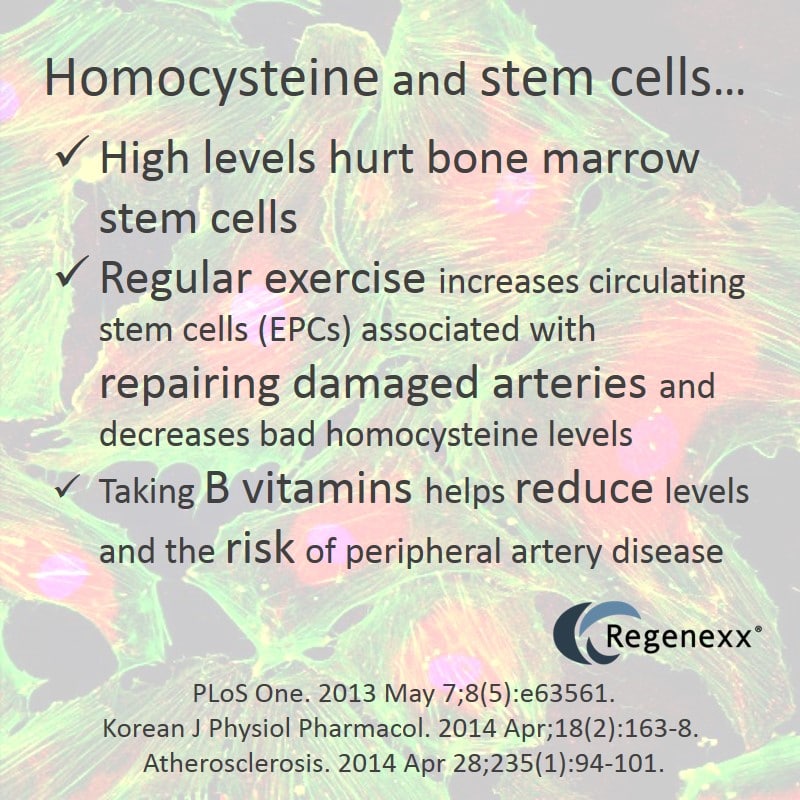How to Improve Stem Cells: Pay Attention to Homocysteine!
I get asked almost on a daily basis how to improve stem cells by patients who are contemplating a stem cell injection. While many things are important such as diet, exercise, and supplements, does a little known blood marker associated with heart attacks make a difference? What is homocysteine and why does it matter when it comes to stem cells?
While cholesterol has gotten a lot of attention with regard to heart disease (mostly due to big pharma), homocysteine has become the red headed stepchild of cardiac risk. Homocysteine is an amino acid that ‘s a cousin of the more common cysteine, an essential building block of protein. In fact, it can be converted into cysteine through B vitamins. High levels of homocysteine has been linked to cardiovascular disease because it makes a person more prone to endothelial injury, which leads to vascular inflammation. This is how plaques get formed which can rupture and cause heart attacks.
While high levels of homocysteine are linked to poor cardiovascular health, are there implications for your stem cells? A recent lab study is concerning. The researchers exposed bone marrow mesenchymal stem cells to homocysteine, simulating the high levels present in some patients. This exposure moved the stem cells toward pre-programmed cell death (apoptosis).
Are there ways to get your homocysteine levels down and improve your stem cells? First, get your levels measured, as most family doctors overlook this important heart health bio marker. Second, if they’re high, there’s nothing like good old exercise! A recent study looked at the effects of 28 days of regular exercise on endothelial progenitor cells (EPCs or stem cells that repair damaged blood vessels) and homocysteine levels. They found that regular exercise training could increase the number of EPCs and decrease homocysteine levels, thus decreasing cardiovascular disease risk in men.
Another tried and true way to get homocysteine levels down is good old B vitamins. If you’re on a low carb or paleo diet, there’s a reduction in the amount of breads and wheat consumed. While this is great to control blood sugar and lose weight, bread is an important source of B vitamins. Can supplementing with a B complex help? A recent large study of about 120,000 men and women in two large study groups found that men who supplemented with vitamin B (and not women) had lower homocysteine levels and less peripheral artery disease.
The upshot? If you’re trying to learn how to improve stem cells, pay attention to the red headed step child of cardiac risk markers – homocysteine. To improve this metric, simply exercise regularly or if you’re male, take your B complex vitamins!

NOTE: This blog post provides general information to help the reader better understand regenerative medicine, musculoskeletal health, and related subjects. All content provided in this blog, website, or any linked materials, including text, graphics, images, patient profiles, outcomes, and information, are not intended and should not be considered or used as a substitute for medical advice, diagnosis, or treatment. Please always consult with a professional and certified healthcare provider to discuss if a treatment is right for you.

